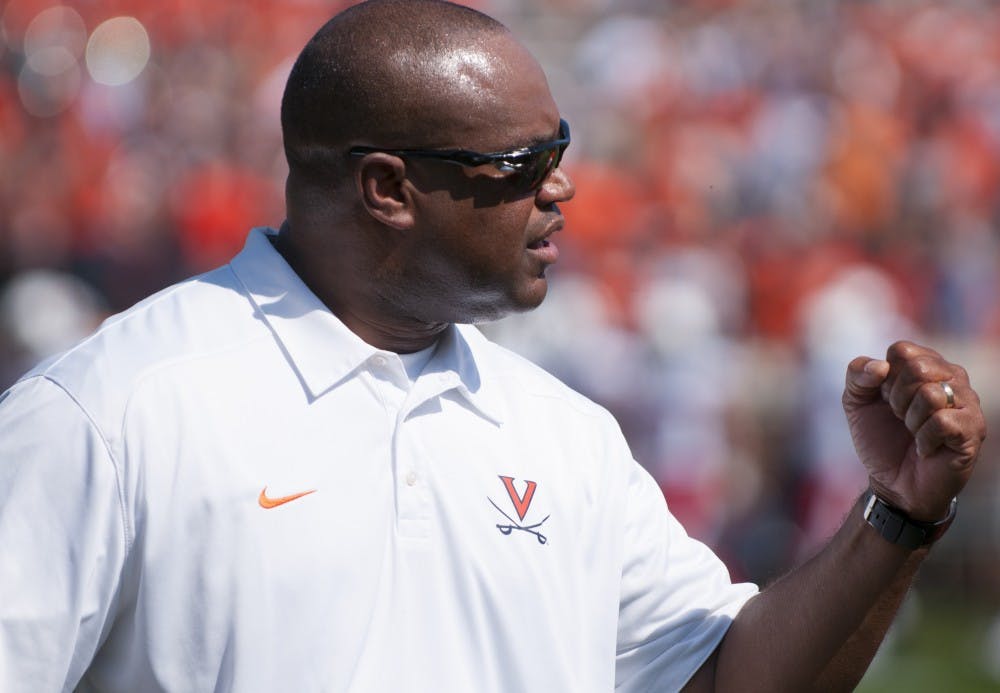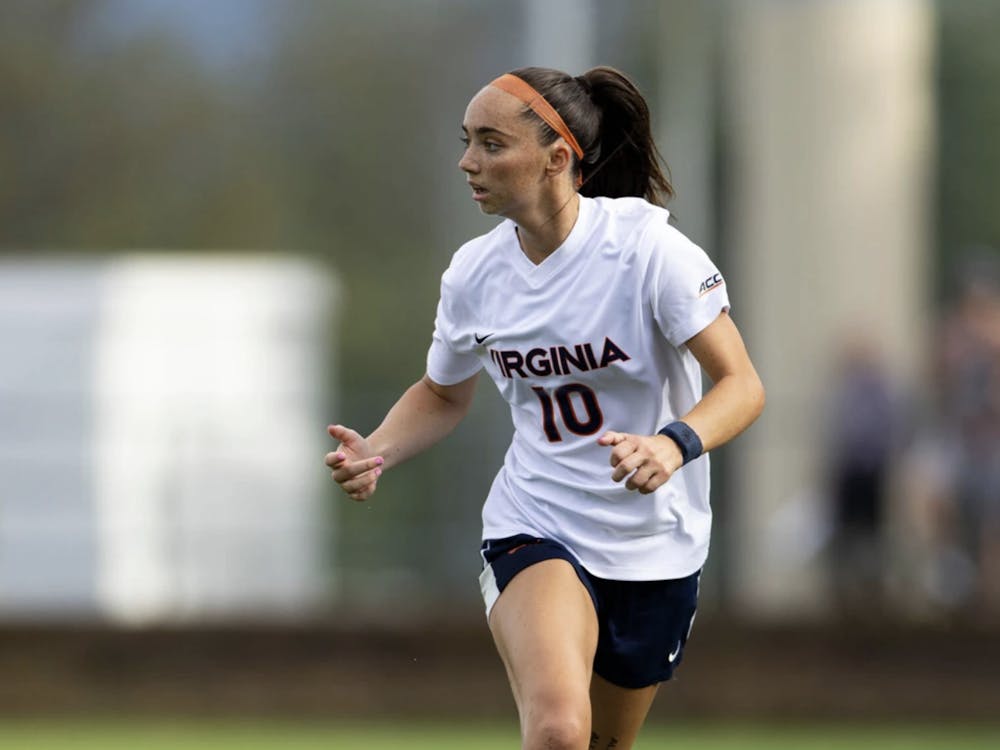This is probably not where Virginia football coach Mike London wanted to be halfway through the season. His team sits at 2-4 after three straight losses, each more demoralizing than the previous. His overhauled staff and system have shown improvement in some areas, but glaring deficiencies in others.
Six games in, Virginia is still looking for a consistent identity, but it has only a brief time to find it. The longer the Cavaliers’ losing streak lasts, the harder it will be to turn it around.
“I mean, the obvious goal is to win,” London said. “Whether you’ve got older guys, younger guys, whatever it is, the psychology of the results of winning, winning begets winning, and when it’s tough and you’re losing close games … you have to deal with the psychology of young players when that occurs.”
Virginia had 505 yards of offense against Maryland, one week after piling up 459 yards against Ball State. Even though both performances were massive improvements from an anemic 188 yards against Pittsburgh, all three efforts ended the same — in a disappointing loss.
The Maryland game was arguably quarterback David Watford’s career best. The sophomore finished 27-for-44 for 263 yards and one touchdown, and he added 34 yards on the ground on seven rushes. His performances have varied this year — he had games of just 114 and 123 yards passing against Brigham Young and Pittsburgh, respectively — but London sees him headed in the right direction. After allowing quarterback competition in previous years, London thinks his commitment to Watford has been beneficial.
“There’s a certain maturation process that you have, getting acclimated to what’s being called upon as far as the system, not having to feel like he’s got to look over his shoulder when a bad throw or something like that is done, and just believing,” London said. “As I said a couple games before, I believe in David. I believe in what we’re asking him to do. He’s getting better at it, and this was his best college football game to date, and I believe he’s got better games ahead of him.”
New offensive coordinator Steve Fairchild came into his job promising to bring his brand of run-heavy, smash-mouth football. Through the early stages of the season, however, the squad’s offensive prowess has failed to materialize. Save a 357-yard rushing explosion against FCS foe Virginia Military Institute, the team had rushing outputs of 109, 124 and 65 yards against BYU, Oregon and Pittsburgh, respectively.
Since it hit a low point against the Panthers, though, Virginia has shown marked improvement on the ground. The team rushed for 236 yards and three touchdowns against Ball State and 242 yards and one touchdown against Maryland.
“Establishing a running game, that can obviously open up the passing lanes for you, and … [junior tailback] Kevin Parks has done a nice job of being a hard, tough, physical runner,” London said. “I think the other part is the ability of David [Watford], also, to be able to use his legs, as well. When you’re running those read plays or those pistol plays, the ability of the quarterback to run to attack the perimeter is something teams have to be aware [of], and then that sets up the play action passes.”
Even with the offensive progress, the team is concerned with the rising number in the loss column. Against Maryland, the team settled for field goals four times in the red zone, and the players know that big yards total mean nothing without touchdowns.
“It’s still a loss, we didn’t finish drives, but we’re moving the football,” junior tight end Jake McGee said after the game. “It was good to see that David felt a little more comfortable back there. I tried to do the best I could. Eventually these losses got to stop. … There’s a point where us players have to capitalize.”
On defense, new defensive coordinator Jon Tenuta has brought a blitz-heavy, aggressive scheme, a change that has mostly proven successful. Virginia ranks 39th nationally in total defense and have been particularly effective on third down, holding opponents to a .269 conversion percentage, seventh in the nation.
The defense, though, is not without its faults. The Cavaliers gave up 59 points against Oregon, 49 points against Ball State, and had their only shutout against VMI. Big plays doomed Virginia this past Saturday: the Terrapins had six plays of more than 30 yards, and the team’s open-field tackling was lacking.
“I believe the overall tackling has to improve for everyone,” London said. “In football games you’re going to have missed tackling, but it’s those missed tackles after catches, those missed tackles after initial stops at the line of scrimmage where a runner continuously continues to run … When you have those opportunities you’ve got to get the guy down on the ground.”
In one respect, Tenuta’s defense has been too aggressive. The team was called for 13 penalties against Ball State, and sophomore defensive end Eli Harold has been flagged for late hits on the quarterback in each of the last two games.
“I wasn’t happy with the fact that [Harold] got a penalty, because again, it extended a drive,” London said. “You don’t want to get players hesitant on attacking the quarterback, but you always have to make them aware of the fact that they are going to be protected, and when you make any contact above the neck area that you may be held accountable for that if the referees see you.”
The second half of the season seems like a tougher lineup than Virginia has faced so far. The Cavaliers have three matchups with ranked teams, including No. 3 Clemson, and all of their opponents other than North Carolina have a .500 record or better. For Virginia to make any turnaround, the team will have to turn its advances into wins.
“I believe in the progress that we’ve seen here offensively,” London said. “I believe that defensively with the moves and guys that will be put in position or given the opportunity to compete that they will get better.”







